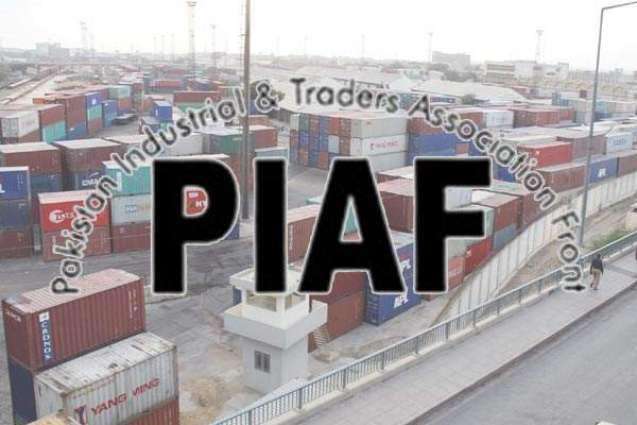F.P. Report
ISLAMABAD: The Pakistan Industrial & Traders Associations Front (PIAF) has stated that the new government will have to take proactive measures to encounter external and domestic challenges, besides stabilizing the economy.
In a statement issued here today, the PIAF Chairman Faheemur Rehman Saigol said that the upcoming government should be committed to transforming the economy of the country, as the process of transforming the economy is already underway in the country, acknowledging that structural reforms in every sector takes time.
Faheem Saigol mentioned that the new elected government will have to take joint action to combat currency smuggling and narrow the difference in dollar rates between official and open markets.
It is the fact that the interim government has undertaken various initiatives for the betterment of the country. The trade deficit narrowed by 3.6 per cent to $1.3 billion in December 2023 compared to $1.9bn in the same period last year, demonstrating positive progress. Additionally, he expressed optimism that the government’s efforts would lead to an expansion in export potential and the export market.
He said that the government would encounter the external and domestic challenges, which are enormous but the government will have to take proactive measures to overcome them.
He said that the Pakistan Credit Guarantee Company had been formed for Small and Medium Enterprises (SMEs), emphasizing that the companies had to stand on their own feet and should not rely on subsidies.
He stated that a substantial change should introduce to the FBR to enhance its performance with a view to raise the economic growth of this country. He said that the economic managers should diligently work on reforms in the FBR and ensure their implementation.
He praised the efforts of the caretaker government and urged consultations with the PIAF in the fiscal budget-making process to facilitate the business community.
Faheem Saigol outlined a comprehensive economic agenda aimed at steering the country towards progress. He emphasized the critical need for a strategic approach to economic development, calling for concerted efforts from both the government and political parties.
At the core of national progress lies a well-defined economic agenda, he stated, underscoring the importance of a cohesive plan to put the economy on a track of sustained growth. He stressed that economic stability is paramount for addressing various societal challenges and fostering an environment conducive to prosperity.
Turning his attention to the international stage, he highlighted the need for the country to actively engage with the global market. He argued that tapping into international opportunities is key to unlocking the full potential of the economy. Encouraging businesses to explore and expand their presence in the global arena, he urged policymakers in the upcoming government to create an enabling environment for international trade and investment.
Furthermore, he called upon political parties to announce clear and robust economic strategies. He argued that these strategies should not only focus on short-term gains but also encompass a long-term vision for sustained progress. The PIAF Chairman emphasized that such transparency from political leaders is crucial for instilling confidence in the business community and investors.
At the strategic level, he proposed a collaborative approach between the government and the business community. He stressed that the government should actively engage with industry stakeholders to formulate successful economic strategies. This collaboration is especially crucial in the after math of the Feb 8 elections. After the polls it is imperative that the government involves the business community in shaping economic policies, he asserted. He argued that aligning the interests of the government and businesses is essential for creating an economic framework that is not only robust but also sustainable in the long run.
A cornerstone of the proposed economic initiatives is the advocacy for a comprehensive 5-year export policy. He emphasized that such a policy would provide a roadmap for enhancing the country’s global competitiveness. He outlined that a strategic export policy is vital for diversifying the economy, creating job opportunities, and ensuring a steady influx of foreign exchange. He said that PIAF serves as a rallying cry for a united effort towards economic progress. The call for transparent economic strategies, international engagement, and a collaborative approach between the government and the business community underscores the urgency of prioritizing economic development for the collective well-being of the nation.







